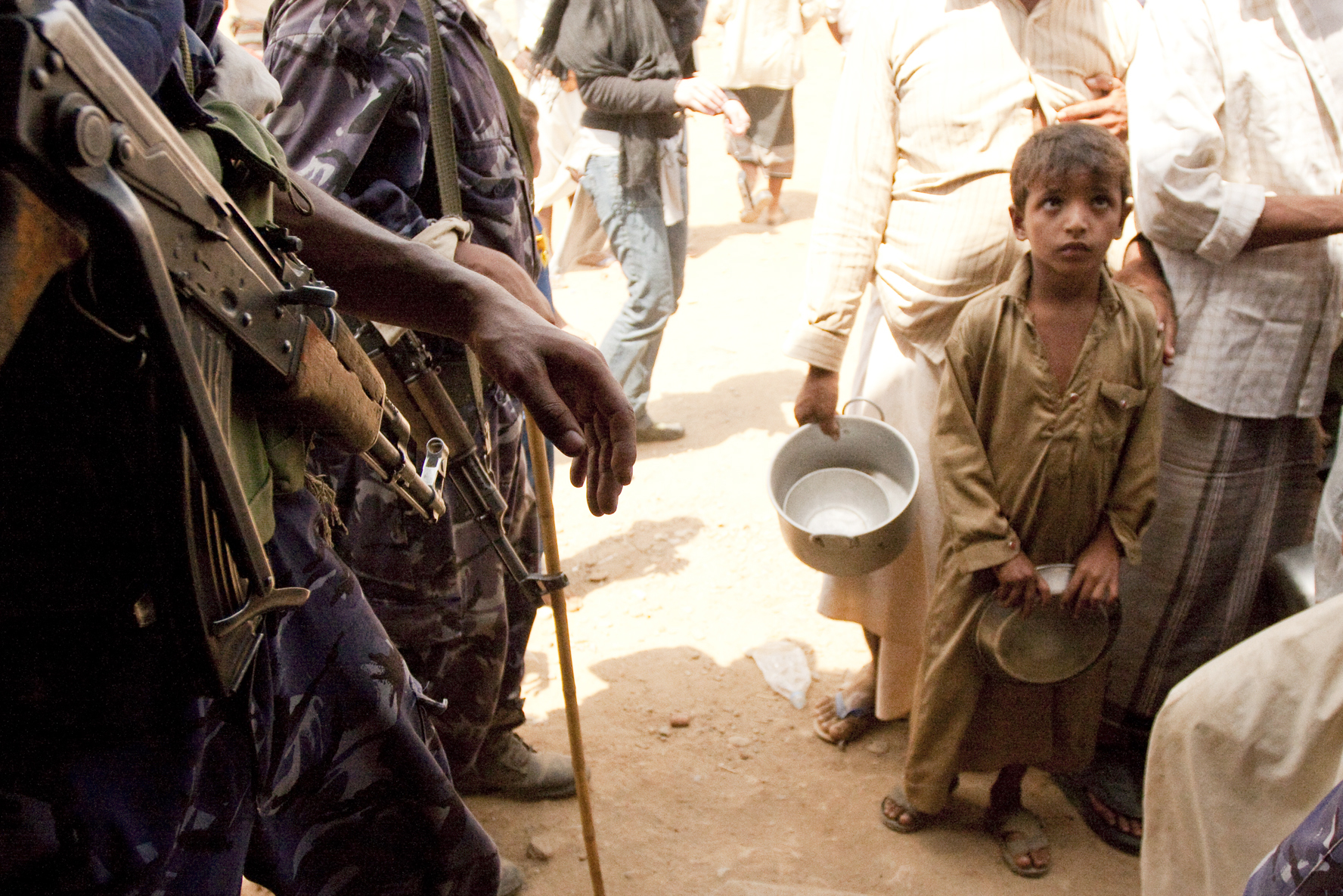Yemen has been torn apart by an ongoing conflict that has destroyed its already weak infrastructure for water, energy and food. As a result, the country has seen the worst humanitarian crisis in the world, with 24 million people being food insecure (80% of its population), 17.8 million without access to potable water and 19.7 million without access to healthcare, according to the UNOCHA.
Despite ongoing United Nation-brokered negotiations for a ceasefire to settle the ongoing civil war, a resolution appears to be out of reach. On top of this, the COVID-19 pandemic has only worsened the living and economic conditions of civilians. With food prices continuously on the rise, a depreciating currency, and a lack of fuel across the country, standards of living have been deteriorating at an unprecedented pace. Meanwhile, amidst aerial attacks in Al-Jawf and Hajjah, civilian casualties continue to pile up.
Adding to this, the rapid spread of COVID-19 further threatens the well being of Yemenis that already face malnutrition, an ongoing cholera outbreak, and other diseases. With only 51% of health facilities currently functioning, Yemen’s health centres cannot adequately provide services to patients.
In the face of this unprecedented crisis, humanitarian aid agencies are currently attempting to address the most immediate needs and prevent the spread of famine.
Humanitarian aid in an ongoing conflict
The delivery of aid and supplies in Yemen has been continuously undermined and restricted, causing the effectiveness of humanitarian assistance in Yemen to deteriorate. Indeed, due to the difficulties of navigating the geopolitical context, aid agencies and international organizations on the ground face several challenges in meeting the needs of the population.
Due to blockades and restrictions in major ports, humanitarian action has been restricted and made inaccessible. Within the conflict, both sides have continuously targeted public infrastructure, cutting food distribution networks and reducing access to health services.
There has been compelling evidence suggesting that both sides of the conflict have been strategically implementing policies exacerbating this humanitarian hunger crisis. For instance, the Saudi-led coalition has systematically bombed domestic food production sites, launched airstrikes to destroy residential areas, and cut off aid from arriving in Yemen. In 2017, a blockade in Hodeidah, orchestrated by the Saudi-led coalition members, prevented medical and food supplies from coming into Yemen. Recently, Iranian-backed Houthi rebels have also blocked the entry of 262 containers into the Hodeida port that belonged to the WHO during the ongoing COVID-19 pandemic.
Diversion of aid
In 2019, UN reports and a CNN investigation uncovered that supplies sent by the UN’s World Food Programme were being diverted by Houthi rebels to feed their soldiers. Indeed, dozens of areas in Yemen have failed to receive supplies for famished households.
In addition, the UN World Food Programme discovered in 2019 that aid receipts were being falsified on a massive scale. Other examples of interference and obstruction by the Houthis include delaying approval of humanitarian aid programs, blocking aid assessments to identify people’s needs, attempting to control aid monitoring, and promulgating violence towards NGO staff and property.
This obstruction of aid has not only been cutting off access to health care and food for civilians, but it has also contributed to the reduction of donor funding in 2020. Aid agencies say that in the last two years, they have spent the vast majority of their time struggling to get approvals to provide assistance across the country due to the interference of regional authorities.
The COVID-19 pandemic has further exacerbated issues of inefficiency, with funding levels falling dramatically over recent months. Indeed, prior to the pandemic, the most frequently cited obstacle for NGOs was already a lack of funding, most notably so for local organizations.
But the pandemic has seen a cut in donations; Only half of the pledged $2.4 billion has been raised by aid organizations because donors, such as Kuwait, Qatar, Saudi Arabia, the United Arab Emirates, and the US recently pulled their support for UN aid agencies. With an already dwindling funding base cut in half, many NGOs and UN organizations are threatened with potentially having to suspend their operations indefinitely.
Internal challenges for organizations
Moreover, internal factors such as the lack of cooperation between organizations and the influence of outside donors restrict the impact of humanitarian organizations. Indeed, many local organizations have reported that some international organizations have failed to involve local organizations in the implementation of many projects. Given the cultural diversity in Yemen, local organizations are indispensable in both helping to navigate the local context and implement practical solutions.
In addition, donors like Saudi Arabia and Iran have politicized humanitarian aid, selecting which territories receive aid according to their own interests in the ongoing war. This forces some organizations to alter their work depending on external influences and donor support, distorting the already unequal distribution of aid.
Humanitarian aid in Yemen has systematically been challenged by trade blockades, the use of starvation as a weapon, the diversion of aid, funding shortages, and a lack of cooperation between international and local organizations. Devastatingly, the impact of these factors has been further exacerbated by the ongoing pandemic. Millions are starving, dying, or lack access to basic needs.
Notably, negotiations for a ceasefire due to the pandemic are currently underway, presenting an opportunity for the international community to more effectively aid the millions of civilians in need. In the meantime, more funding is urgently needed in order to strengthen inter-organizational cooperation and increase the efficiency of aid distribution. Time is of the essence.
Edited by Helia Mokhber.
Photo credits: “Yemen IDPS 7” by IRIN Photos. Published 9th of October, 2009. This work was sourced under a Attribution-NonCommercial-NoDerivs 2.0 Generic. No changes were made.
Melanie Baume is currently a fourth year undergraduate student at McGill University where she is pursuing a major in International Development Studies and an honours degree in Political Science, as well as a minor in Social Entrepreneurship. As a Staff Writer for Catalyst McGill, she is highly interested in the refugee crisis, sustainable development, education and world politics.

